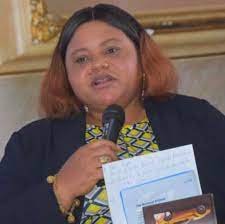This piece beams light on the slim representation of women in decision-making roles within the Nigerian health sector, occasioned largely by discrimination, as Nigeria celebrates the International Day of Women.
Despite their qualifications and significant contributions to the healthcare profession, women’s involvement in leadership/decision-making remains limited, so also is their career growth stunted.
Gom Mirian analyses the challenges and barriers faced by women in accessing healthcare and the systemic biases that hinder their involvement in healthcare decision-making.
Feminisation
Ideally, women are known to be powerful decision makers. Indeed, women are influential. At the home front they influence the men (their husbands in most impactful decisions) The feminisation of healthcare jobs is a global phenomenon, with 70% of the global health workforce being female, according to the World Health Organization. It not hypothetical.
Women in HealthCare 65% Medical Doctors, 87% Nursing Personnel
In Nigeria, women make up the majority of medical doctors and nursing and midwifery personnel, with 65% of medical doctors and 87% of nursing personnel being women. However, despite their significant presence in the sector, women are underrepresented in decision-making positions.
Only One Federal Health Agency Headed By Woman
The Africa Health Report (AHR) revealed that among the six agencies/ parastatals under the Federal Ministry of Health and Social Welfare in Nigeria, only one is headed by a woman, which is the National Agency for Food and Drug Administration and Control (NAFDAC). Additionally, no woman has ever been appointed as the Minister of Health in the country.
This underrepresentation of women in leadership positions is a systemic issue that needs to be addressed to ensure gender equality and diversity in healthcare decision-making.
Salma Anas

One notable figure in the Nigerian health sector is Mrs. Salma Anas, an internationally renowned public health expert who has worked across various units and departments in the federal health ministry. Mrs. Anas has a passion for improving access to quality Reproductive, Maternal, Newborn, Child Adolescent, and Elderly Health plus Nutrition (RMNCAEH+N) services, including sexual and reproductive rights and gender-based violence.
Her journey from grassroots work to becoming the Director of Family Health Services at the Federal Ministry of Health and her subsequent appointments as health commissioner and special adviser exemplify the potential for women to excel in decision-making roles within the health sector.
Despite the achievements of women like Mrs. Anas, there are significant barriers hindering women from attaining peak levels of policy/decision-making positions in the sector.
Gender Advocate Faith Nwadishi
Faith Nwadishi, a gender activist and Executive Director the Centre for Transparency and Accountability (CTA), highlighted the patriarchal systems in African culture, particularly in government and other professions, as a major barrier.
In an interview with AHR, Ms. Nwadishi emphasised the inequality that leads to women having to work harder to achieve the same level of recognition and opportunities as men.
She also pointed out biases in appointments, promotions, and other sectors as barriers that prevent women from rising to leadership positions.
She stressed the importance of amplifying women’s voices in health policy to positively impact health outcomes and address issues such as maternal mortality.
Additionally, she called for policy and constitutional changes to ensure greater gender equality and encouraged collective action to advocate for women’s rights.
Barriers and Biases
The challenges and barriers faced by women in accessing healthcare are closely intertwined with their limited involvement in decision-making roles. Systemic biases and patriarchal systems create obstacles for women in the Nigerian health sector, hindering their ability to contribute to policy-making and leadership positions.
Addressing these barriers is essential to ensure gender equality and diversity in healthcare decision-making, which can lead to improved health outcomes and the effective addressing of healthcare issues such as maternal mortality.
International Day of Women
As Nigeria celebrates the International Day of Women, it is crucial to recognise the contributions of women in the health sector and to advocate for greater representation of women in decision-making roles.
Recommendations
By breaking barriers and embracing change, progress and hope can be achieved, leading to a more inclusive and equitable healthcare system for all.
Policymakers, healthcare leaders, and society as a whole must work towards creating an environment that fosters gender equality and empowers women to take on leadership positions in the Nigerian health sector.
Only then can the full potential of women in healthcare decision-making be realized. This will ultimately lead to positive and transformative changes in the sector. Time will tell if the powerful men in corridors of power will allow themselves to bend over backward, give women a chance in the spirit of inclusion, equality and fairness.
The issue of gender equality in the healthcare field requires affirmative action. Not emotion anymore. The issue should move from hypothetical realm to reality and that is only when Nigeria would be seen among the comity of nations as tapping its human capital resources in full to drive the much awaited development and progress.



